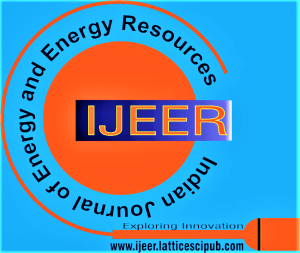![]()
Integration of Energy Efficiency of Conventional Building: A Sustainable Approach
Utsav N. Changole1, Shantini A. Bokil2
1Utsav N. Changole, M-Tech Student, Dept. of Civil Engineering, Dr. Vishwanath Karad MIT World Peace University, Pune (Maharashtra), India.
2Shantini A. Bokil, Assistant Professor, HOS, Department of Civil Engineering, Dr. Vishwanath Karad MIT World Peace University, Pune (Maharashtra), India.
Manuscript received on 09 October 2021 | Revised Manuscript received on 25 October 2021 | Manuscript Accepted on 15 November 2021 | Manuscript published on 30 November 2021 | PP : 19-21 | Volume-1 Issue-1, November 2021 | Retrieval Number:100.1/ijeer.A1004121121
Open Access | Ethics and Policies | Cite | Mendeley | Indexing and Abstracting
© The Authors. Published by Lattice Science Publication (LSP). This is an open-access article under the CC-BY-NC-ND license (http://creativecommons.org/licenses/by-nc-nd/4.0/)
Abstract: Green buildings are the structures which are environment responsible and resource efficient during its life cycle. To optimize the operation and maintenance of a building, sustainable requirement should be adopted to minimize the energy efficiency. The objective of this research is to do trail to minimize the energy consumption of a traditional building by adopting energy efficient parameters and analyze the feasibility of a structure converting into sustainable building. The main aim of this research paper is to identify the various parameters which can evaluate energy efficiency. The paper emphasizes the need for adopting an integrated approach with unconventional design construction and impact of effective optimization to achieve sustainable energy efficiency in any structure.
Keywords: Green Environment, Life Cycle Analysis, Sustainability, Energy efficiency.
